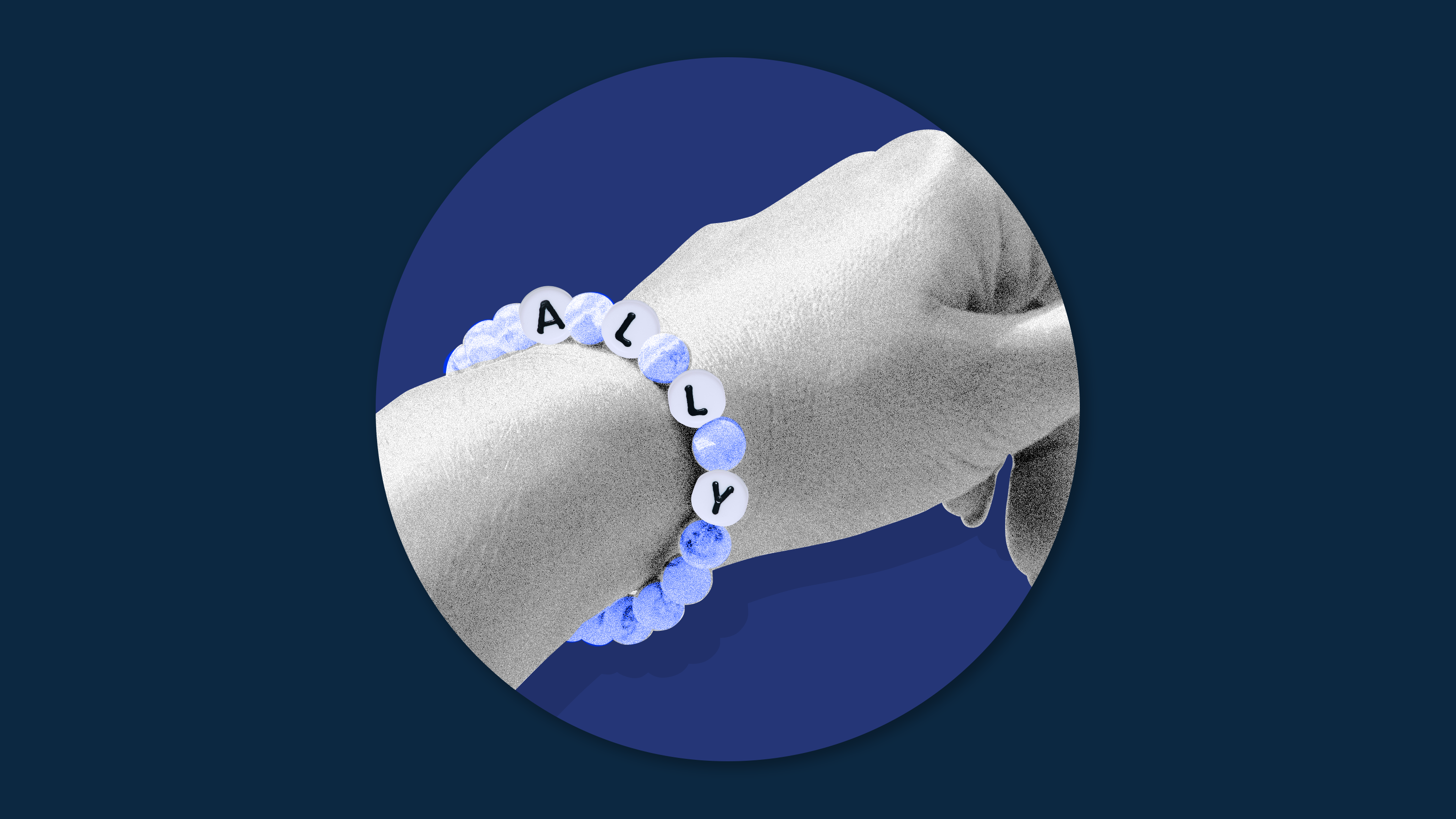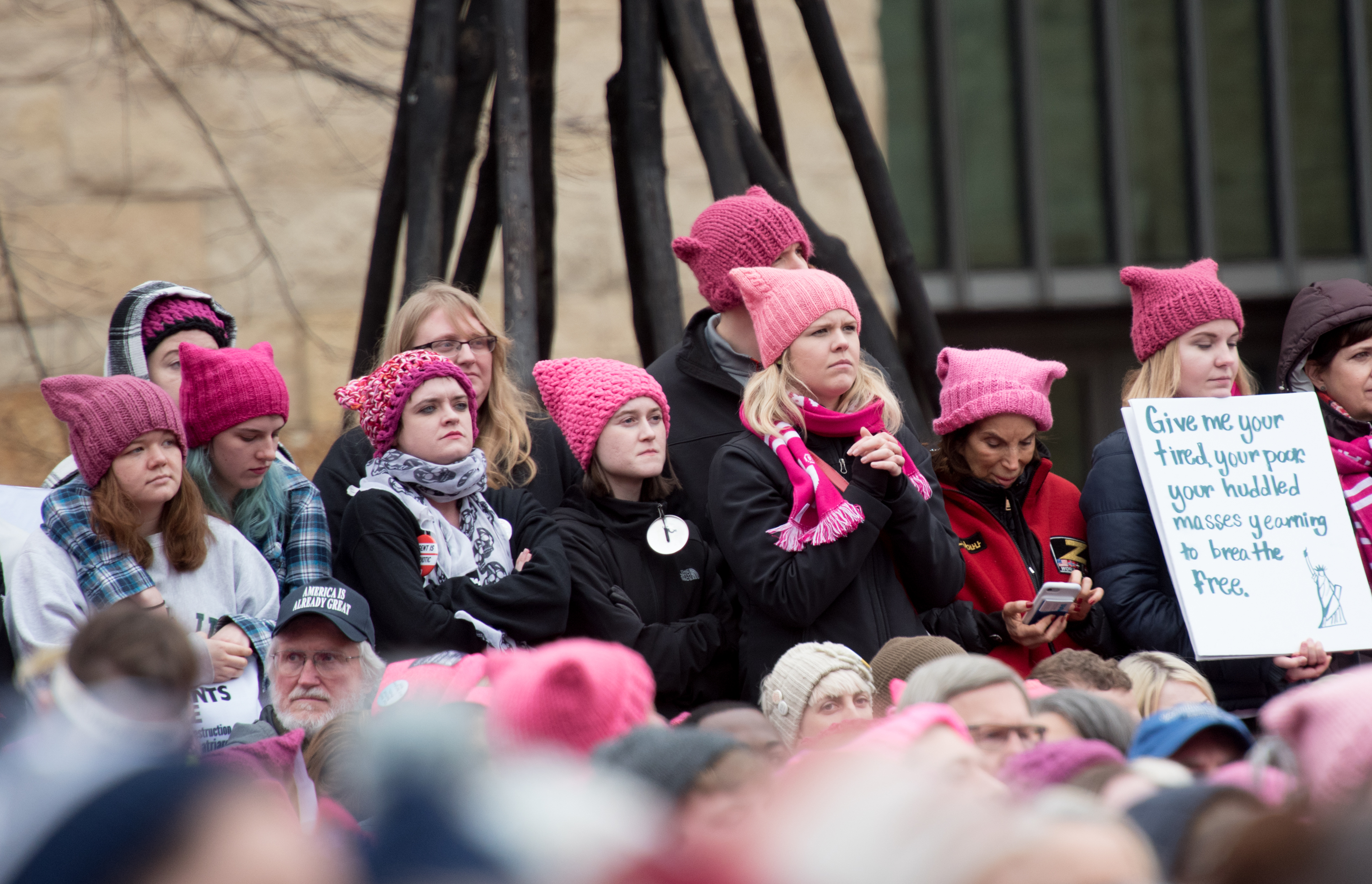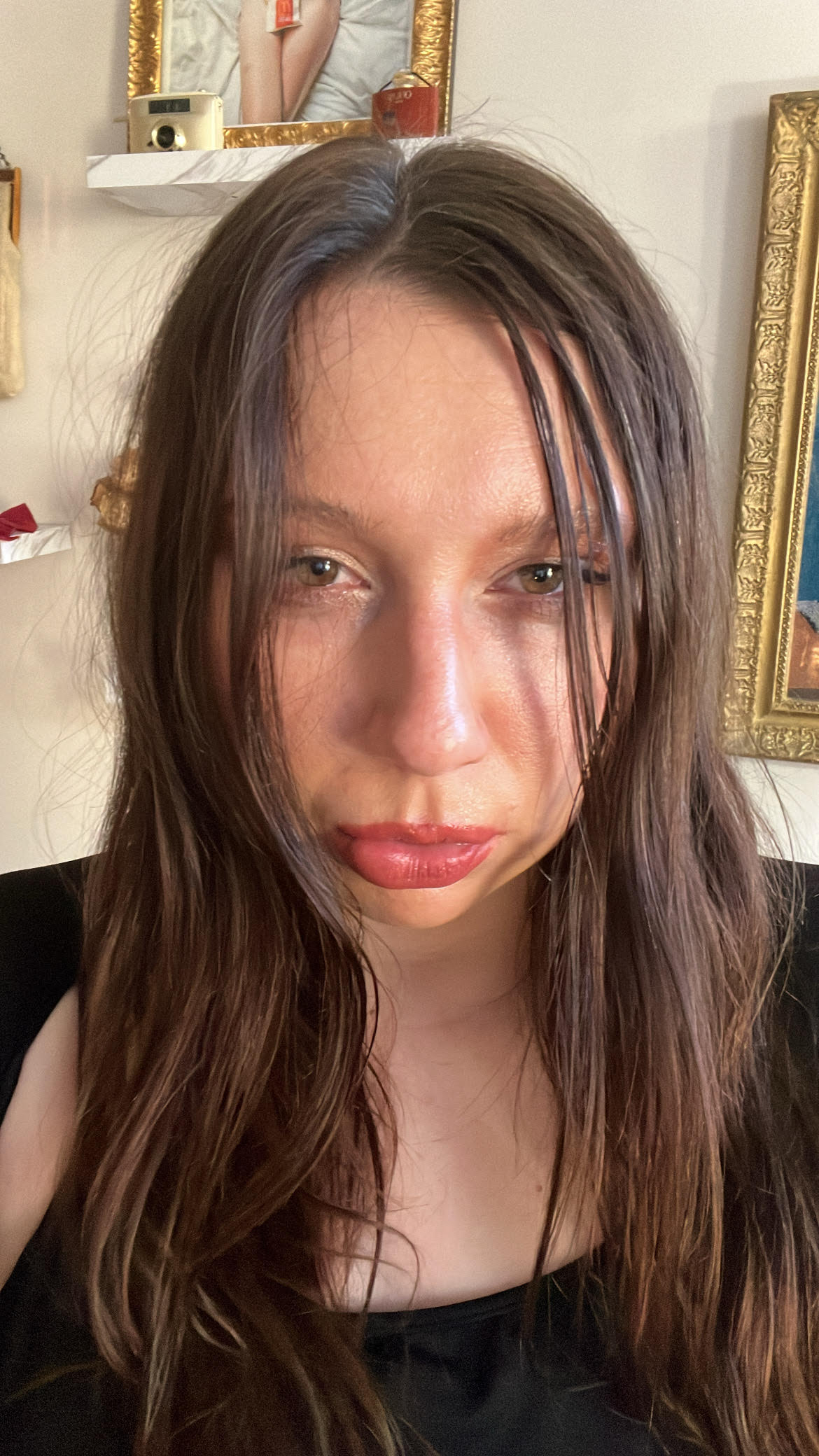Please, We Don't Need Your Blue Bracelets
After Donald Trump was declared the winner of the 2024 election, TikTok creators began crafting \201callyship\201d accessories as a show of solidarity with people of color. Instead, they left marginalized voices feeling unseen.


It began after a contentious election, when Donald Trump defeated Vice President Kamala Harris to become the next president of the United States. That's when TikTok got to talking. “Fellow white women, how are we signaling to each other now which side we are on?” said content creator Libby Louwagie, who goes by Libby Rae Lou on the platform.
What followed was a quickly-hatched plan by left-leaning white Democrat and liberal women who voted for Harris to display their allyship through, somewhat curiously, DIY crafts. Specifically, friendship bracelets with blue beads and blue string. The thinking was that, when out in public, you could easily identify who is a Trump supporter and who is not by checking their wrist for a flash of blue jewelry.
The idea took off. On TikTok, content creator @witchywoosel’s video promoting the blue bracelet friendship movement racked up 5.1 million views. She and other supporters saw it as a symbol of solidarity with people of color against the backdrop of an election that sparked an uptick in racist harassment and virtual attacks on women. For white women, the blue bracelets also served another purpose: to separate themselves from those white women; the 53 percent who cast their ballots for Trump, despite accusations of sexual abuse and his previous term in office where he led the charge on rolling back reproductive freedoms.
But over the weekend, as videos of women stringing together their blue friendship bracelets gained millions of views, things began unraveling. The tenor of the conversation changed. While the bracelets were initially embraced by some online as a symbol of support, a sign that the wearer was a "safe person," others quickly called the method another gimmicky form of performative virtue signaling.
“I see the bracelets, and other physical symbols like it, as a call by white people to be reassured by marginalized communities,” says news and entertainment content creator Kellie Chudzinsk. “It’s no one’s job to validate your morals or character.”
The blue friendship bracelet is hardly the first form of empty allyship to arise in response to a Trump election. In 2017, thousands attended the Women’s March, a protest the day after Trump’s first inauguration, wearing homemade pink caps. The so-called “pink pussy hats” were intended to be a sign of resistance, inspired by Donald Trump's bragging about sexually assaulting women on Hollywood Access. However, they demonstrated a very narrow expression of who faces oppression by only representing genitals that are pink (white women)—inherently excluding women of color, trans women, and those who are nonbinary. It centered on whiteness as the only demographic that faced women’s rights violations, and wearing one didn't necessarily come with tangible action to support all women.
In the wake of political unrest, people rush to do the bare minimum...so they can feel like they’re a part of the solution without actually solving anything.
It happened again in June 2020, when in response to the brutal murder of George Floyd by a white police officer, many white social media users took to Instagram to post an image of an empty black square—co-opting a movement started by two Black women to raise awareness of the music industry profiting off Black artists. The posts, which used hashtags like #BlackLivesMatter and #BLM, also drowned out crucial information shared by organizers, including where to protest and donate. It ultimately became another example of performative allyship that lacked any meaningful action to truly support the cause.
Get exclusive access to fashion and beauty trends, hot-off-the-press celebrity news, and more.
“In the wake of political unrest, people rush to do the bare minimum—post a black square, wear a bracelet—so they can feel like they’re a part of the solution without actually solving anything,” says content creator Mia Carr.
It's the protest equivalent of patting yourself on the back: Showing you're "one of the good ones," doesn't actually better the world, influencer Simone Umba says. Instead, “Black women [and other marginalized groups] don’t need a bracelet—just treat us with human decency.”

Pink hats were also intended to be a symbol of allyship, but they were eventually seen as exclusive.
The reality is that craft projects can't truly combat racism. But real action can. That can include dedicating time to learn about power mapping, which reveals who is on your side through geography and who can be swayed on a municipal, state, and federal level; supporting Black and brown mental health spaces rather than co-opting them; and having tough conversations with people in your life who may have voted differently than you did. Candice Fortin, a climate justice campaigner and organizer, also recommends getting involved with an anti-racist group, such as SURJ (Showing Up For Racial Justice), where white people take on the labor of educating others. “We don’t need ‘allies,’ we need accomplices and co-conspirators,” Fortin says.
If anything, “anti-racism isn’t a branding exercise,” she adds. A blue friendship bracelet reads like a self-congratulatory performance if it isn’t coupled with action for social change.
Maria Santa Poggi is a freelance journalist who covers fashion, beauty, and culture. Her work has appeared in Vogue, Teen Vogue, Vogue Business, Paper, i-d, Rolling Stones, Elle, Allure, Dazed, and Highsnobiety amongst other publications. She recently received her MFA from Sarah Lawrence College.
